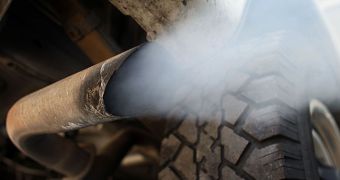While contemplating the possibility of using artificial rain to curb air pollution, China is also taking steps towards cutting down on the amount of toxic chemical compounds that its fleet releases into the planet's atmosphere on a daily basis.
Thus, high officials in Beijing have recently announced that, by the year 2017, the city will get 13,825 new buses. Unlike the ones currently driven up and down Beijing's streets, these new buses will have a low ecological footprint.
As detailed by the country's Ministry of Environmental Protection, 4,058 of them will run on electricity, whereas the remainder 7,185 will run on natural gas.
Information shared with the public says that, should things go as planned, these eco-friendly vehicles will replace about 80% of the buses currently used in Beijing. The goal is to reduce vehicle emissions in the area and improve on local air quality.
By the looks of it, Beijing's replacing 80% of its buses with green vehicles will lead to annual fuel savings of up to 150,000 tons. Besides, nitrogen dioxide and fine particulate matter emissions linked to the city's public transportation system are expected to fall by 50% and 60%, respectively.
Interestingly enough, high officials in China have also said that, in the months to come, they are to take steps towards developing existing bus routes, and encouraging the city's residents to opt for public transportation when traveling to and from work.
These measures are expected to translate into a drop in the number of personal vehicles that hit Beijing's streets and roads on a daily basis. Hence, local vehicle emissions would be further reduced.
“The aim is to continuously reduce automobile emissions in downtown areas of the capital, while easing traffic congestion,” Wang Hao, an official with the commission's transport bureau, explained in a statement.
As reported on several occasions, China is currently dealing with major air pollution. In fact, local concentrations of airborne toxic compounds are said to be so high that they cause thousands of premature deaths on a yearly basis.

 14 DAY TRIAL //
14 DAY TRIAL //